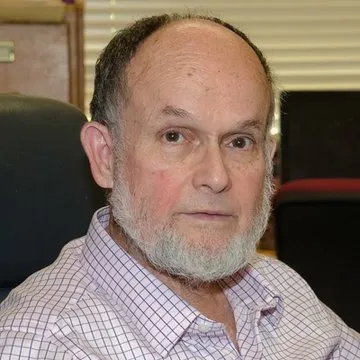
Five Stanford education professors appointed to endowed chairs
Stanford Graduate School of Education (GSE) Professors Martin Carnoy, Anne Charity Hudley, Philip Fisher, Bruce McCandliss, and Francisco Ramírez have been appointed to endowed chairs, the highest honor the university can bestow on faculty.
Dean Dan Schwartz announced the appointments at a GSE faculty meeting on Nov. 8.

Martin Carnoy
Martin Carnoy, a labor economist with a special interest in the political economy of the educational system, was named the Lemann Foundation Professor.
Carnoy, who joined the GSE faculty in 1968, co-directs the GSE’s Lemann Center for Entrepreneurship and Educational Innovation in Brazil. He teaches courses in global education policy and organization, the economics of education in the global economy, and topics in Brazilian education. He first did research in Brazil in the 1960s as part of a four-year project on the Latin American free trade area at the Brookings Institution and the University of São Paulo, and he has done extensive studies on Brazilian education and policies.
The professorship “honors the close relationship he and [Brazilian entrepreneur] Jorge Paulo Lemann have developed as they worked together to multiply the role of research and educated leaders in Brazilian education,” Schwartz wrote in nominating him for the chair.
Carnoy earned his bachelor’s degree in electrical engineering from the California Institute of Technology, and his master’s and doctorate in economics from the University of Chicago.
He is the first to hold the Lemann Professorship, which was established this year by the Lemann Foundation, a nonprofit organization founded in 2002 by Jorge Paulo Lemann to enhance the quality of public education in Brazil. The professorship supports a faculty member at the GSE whose focus and specialty is on Brazilian and South American education. Carnoy vacated his previously held endowed chair, the Vida Jacks Professorship, to accept the Lemann Foundation Professorship.

Anne Charity Hudley
Anne Charity Hudley, a linguist with a focus on African American language in schools and communities, was named the Bonnie Katz Tenenbaum Professor of Education.
Charity Hudley, who joined the GSE faculty in 2021, works with the program on Race, Inequality, and Language in Education (RILE), which examines the major cultural, societal, and historical factors that influence educational attainment. Her research and publications address the relationship between language variation and educational practices and policies from preschool through graduate school, with a particular emphasis on creating high-impact practices for underrepresented students in higher education.
Her faculty appointment is in collaboration with the Center for Comparative Studies in Race and Ethnicity at the School of Humanities. She also serves as the associate dean of educational affairs at the GSE, and is affiliated with the African and African American studies program and the linguistics department at Stanford.
Charity Hudley “has a superb record of research, while also aspiring to leadership positions so she can make a difference,” Schwartz wrote in nominating her for the chair. “She is nationally recognized for her contributions to the basic field of sociolinguistics, while also developing educational solutions that improve the abilities of African Americans to participate and shape democracy.”
Charity Hudley earned her bachelor’s and master’s degrees in linguistics from Harvard University, and her doctorate in linguistics from the University of Pennsylvania. Prior to joining the GSE, she was the North Hall Endowed Chair in the Linguistics of African America at the University of California at Santa Barbara (UCSB), where she also served as the UCSB campus director of undergraduate research.
The Bonnie Katz Tenenbaum Professorship is named for GSE alumna Arlene Bonita (Bonnie) Tenenbaum, who was an educator for nearly 50 years and served on the GSE Dean’s advisory council from 2002-2009. It is awarded to a scholar of distinction in one of the basic disciplines of educational research whose work is linked to the context of democracy in educational practice and policy. It was previously held by Guadalupe Valdes, an emerita professor at the GSE.

Philip Fisher
Philip Fisher, a psychologist whose work specializes in child development, was named the Excellence in Learning Graduate School of Education Professor.
Fisher, who joined the GSE faculty earlier this year, is the founding director of the new Stanford Center on Early Childhood. His research focuses on developing and evaluating early childhood interventions in communities, and on translating scientific knowledge about healthy development under conditions of adversity for use in social policy and programs. He has a particular interest in the effects of early stressful experiences on children’s neurobiological and psychological development. His work also explores the brain’s plasticity in the context of therapeutic interventions.
Fisher is “an exceptional intellectual leader who not only generates discoveries and practical applications in his own work, he is also a field builder who brings together talent and helps faculty collaborate,” Schwartz wrote in nominating him for the honor. “Within his short time at Stanford, he has already recruited multiple faculty to work together on significant projects in early childhood learning and generated excitement among stakeholders around the country about what Stanford can accomplish.”
Fisher earned his bachelor’s degree in psychology from Bowdoin College, and his master’s and doctorate in clinical psychology from the University of Oregon. Prior to joining the GSE in 2022, he was the Philip H. Knight Chair and professor of psychology at the University of Oregon (UO), where he founded and served as the first director of the UO Center for Translational Neuroscience.
He is the first to hold the Excellence in Learning Professorship, which was established this year with an anonymous gift to enable the GSE to honor, recruit, and retain faculty who demonstrate a depth of excellence in the field of education and who are committed to pursuing equitable, accessible, and effective learning for all.

Bruce McCandliss
Bruce McCandliss, who uses the tools of cognitive neuroscience to study individual differences and educational transformations in skills such as attention, literacy, and mathematics, was named the Pigott Family Graduate School of Education Professor.
McCandliss, who joined the GSE faculty in 2014, is the head of the Educational Neuroscience Initiative at the GSE, which works to link elementary school education with neuroscience research to better understand how different learning experiences drive changes in the brain. Current partnerships include the Brainwave Learning Center at Synapse School in Menlo Park, Calif., and Athena Academy, a school in Palo Alto dedicated to educating children with dyslexia. He also teaches courses at the GSE in cognitive development in childhood and adolescence, educational neuroscience, and literacy development and instruction.
McCandliss combines science and design “in a very Stanford way,” Schwartz wrote in nominating him for the honor. “He addresses fundamental questions around brain plasticity and organization, while also designing experiences for students that simultaneously benefit their learning and advance the science.”
McCandliss earned his bachelor’s degree from Michigan State University, and his master’s and doctorate from the University of Oregon. Prior to joining the GSE, he was the Patricia and Rodes Hart Chair of Psychology and Human Development at the Peabody College of Education and Human Development at Vanderbilt University.
The Pigott Family Graduate School of Education Professorship was endowed by Stanford alumnus Mark Pigott in 2006, in honor of his 30th reunion and the Pigott family’s legacy of supporting Stanford since 1923. Previously held by Eamonn Callan, an emeritus professor at the GSE, the chair is intended to be held by a faculty member who is teaching undergraduate and graduate students on a regular basis as well as researching in the area of teaching excellence.

Francisco Ramírez
Francisco Ramírez, a sociologist whose work focuses on international education, was named the Vida Jacks Professor of Education.
Ramírez joined the GSE faculty in 1987 and also holds a courtesy appointment as professor of sociology at Stanford. His research involves cross-national studies about the impact of globalization on universities, the role of education in the formation of world society, and the influence of world society on educational developments, addressing topics such as patterns of women’s access to higher education and the role of education and science in economic development.
Ramírez has been a visiting fellow at the Center for Advanced Study in the Behavioral Sciences and the Swedish Collegium for Advanced Studies, and is now a senior visiting fellow at the Cluster of Excellence (Contestations of the Global Liberal Script) at the Free University of Berlin. He has been inducted into the honor societies of the American Sociological Association and the Comparative and International Education Society, and has received mentoring awards from the Spencer Foundation and the GSE. He teaches courses in the doctoral and master’s programs in international comparative education and the sociology of education.
“He has been a tremendous academic force, helping to forge the ‘world society’ view that has come to distinguish Stanford’s contribution to international education,” Schwartz wrote in nominating him for the chair. “He has pioneered fundamentally new ways to investigate the role of education in creating national identity and society.”
Ramírez earned his bachelor’s degree from De La Salle University in the Philippines, and his master’s and doctorate in sociology from Stanford.
Vida Jacks, who died in 1943, was the youngest daughter of the David Jacks family of Monterey, Calif. Her older sister, Margaret Jacks, bequeathed a gift to Stanford that established two professorships, including the Vida Jacks Professorship. The chair was previously held by Martin Carnoy.
Faculty mentioned in this article: Martin Carnoy , Philip Fisher , Anne Harper Charity Hudley , Bruce McCandliss , Francisco Ramirez



